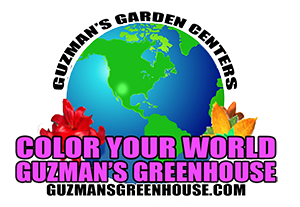Last updated on April 6th, 2025 at 11:15 am
How to Grow Herbs
How to grow herbs. Some folks have a hard time growing a large vegetable garden. Especially in hot climates. Maintaining a herb garden is much easier and you can see results in a matter of weeks. You will have the constant availability of fresh, delicious herbs to flavor your meals with.
- They are one of the easiest plants to grow
- If done right you can save money at the grocery store
- Growing your herbs is a relaxing stress-free project
- Herbs are good for you
- You will have a fresh supply of herbs
- A herb garden does not require a large area
- Growing Herbs in pots is simple and easy
Grow Herbs at Home

What is the PH level of soil for herbs?
Herbs like just a little above acidic or between 6.0 and 7.5 on a Ph tester.
| Herbs: | Ideal pH |
| Basil | 5.5 – 6.5 |
| Chives | 6.0 – 7.0 |
| Fennel | 5.0 – 6.0 |
| Garlic | 5.5 – 7.5 |
| Ginger | 6.0 – 8.0 |
| Hops | 6.0 – 7.5 |
| Marjoram | 6.0 – 8.0 |
| Mint | 7.0 – 8.0 |
| Parsley | 5.0 – 7.0 |
| Peppermint | 6.0 – 7.5 |
| Rosemary | 5.0 – 6.0 |
| Sage | 5.5 – 6.5 |
| Spearmint | 5.5 – 7.5 |
| Stevia | 6.7 – 7.2 |
| Thyme | 5.5 – 7.0 |
The source for the table above comes from Gardenersnet.com
What type of herbs should I choose?
First, you will have to decide if you want to grow herbs from a seed or a small nursery-grown container. The easiest choice is to start with the container type. You will bypass the germination point. A future post on herb and seed germination will be coming soon.
One quick way of deciding what type of herbs to grow is to look in your kitchen spice cabinet. By planting your collection of these herbs, you can save money on buying them from the grocery store while having the added benefit of freshness. Some of the herbs you might start with include.
- Rosemary
- Sage
- Basil
- Dill
- Mint
- Chives
- Parsley
- Oregano
- Garlic
- Coriander or (Cilantro)
How to start a herbs in containers
Growing herbs in containers will enable you to care for them indoors or in a small greenhouse. This means harsh temperatures should not be an issue. It is important to choose the herbs that you want and need. Herbs are available in early spring and there should be a multitude of herbs available at your local nursery. One thing to remember is that container plants need more attention as opposed to growing them on the ground.
Move your Herbs to Shady Spot
It’s also easy to move your plants as the season goes on. Mid-summer and move them to shady conditions. In mid-winter move them indoors.
When it’s hot out, herbs can dry out fast, so I water them in the morning. It gives the plants time to soak it up before the sun gets too intense. I also mulch around the base with something like straw or bark to keep the soil cool and moist. If the heat’s crazy, I move pots to a shadier spot or put up a cloth for some protection. For herbs like basil or cilantro that hate being overheated, I keep an eye on them—wilting is a big red flag. They’ll bounce back if I catch it early and give them extra water.
Planting herbs in the Ground or Raised Beds
Many herbs such as mint will grow extremely fast so be careful where you plant them. Mint should be planted by itself in an open space or in a container to help control its’ growth. You do not want it to overtake your entire herb garden!
The best way to prevent this problem is to plant the more aggressive plants in pots and make sure your pot has good drainage. When it comes time to harvest the herbs you have labored so hard over, it can be fatal to your to take off too much. If your plant isn’t well established, it isn’t healthy to take any leaves at all, even if it looks like it’s not using them.
Preparing the Soil for Herb Gardening
The best soil is good well-drained soil. It needs to contain plenty of organic matter. Your local-friendly nursery should have organic compost for sale. The soil needs to retain water if it seeps through quickly the root system may not get enough water. However, it must also drain well this means checking your container for a hole at the bottom making sure the hole is not plugged.
Incorporate about 2-3 inches of compost into your native soil. Manure can also be incorporated at this time. It is important not to overdo any type of manure as it does contain heavy amounts of nitrogen. Too much nitrogen can cause the root system to burn.
When choosing an area to put your herb garden, remember that the soil should have good drainage. If the soil is saturated all the time, you will have a hard time growing a healthy plant. One of the best ways to fix this is to dig a foot deep into the soil and put a layer of crushed rocks down before replacing all the soil. This will allow all that water to escape, and drain properly. Always use loamy potting soil or organic compost for your herb plant and fertilize with a good vegetable/herb fertilizer.
Harvesting your crop should be done at the right time, your herb plant may die if you take off too much too early. If your plant isn’t well established, it is not a good idea to remove anything at all, even if it looks like it’s not using them.


You should wait until your plant has been well established for at least several months before taking off any leaves. This wait will be worth it because growing unabated your plant will produce a good yield for years to come. Once you’ve harvested your homegrown herbs, you’ll want to use them in cooking. Of course, that was the plan right?
What is the Ideal pH level for Herbs?
The ideal pH level for growing most herbs ranges between 6.0 and 7.5. Here’s a quick breakdown to guide you:
- Slightly Acidic to Neutral Soil: Most herbs, like basil, parsley, and cilantro, prefer a pH of 6.0–7.0.
- Tolerant to Slightly Alkaline Soil: Mediterranean herbs, such as rosemary, lavender, and thyme, can thrive in a pH up to 7.5.
Testing soil pH can ensure healthy growth, as improper levels may limit nutrient absorption. You can adjust soil pH using garden lime to raise it or sulfur to lower it. Learn how to change pH levels in your soil.
How to dry out your herbs for consumption
Once you have gathered a good crop it is time to use them! Most herb gardeners will dry them out. The process begins by placing them on a cookie sheet and baking them at 170° degrees Fahrenheit for 2 to 4 hours. After they’re sufficiently dried to be used in cooking, it’s best to use a cookbook for instructions on how to properly use them in dishes…, especially Mexican Cooking. The Herb Book: The Most Complete Catalog of Herbs Ever Published
If you want to store your herbs for later usage, you should keep them in a plastic or glass container. Do not use paper or cardboard as this will absorb the freshness of your herbs.
During the first few days of storage, you should regularly check the container and see if any moisture has accumulated. One good tip is to always remove the moisture left from the first drying process, moisture will encourage mildew when you store your herbs.
Mildew is a tough thing to remove and can infect other plants nearby. Too much water and shade will make plants susceptible to mildew.
Inspect your herb plants early and throughout the growing process. Too small or yellow plants will indicate insufficient nutrients are needed for proper growth. Small growth and numerous holes and you have insects or grubs.
Conclusion
So if you enjoy herbs or gardening, or both, then you should probably consider setting up an herb garden. There is some work involved at first, especially during the early stages of digging around and planting your favorite herbs. But after the initial phase, it’s just a matter of harvesting and drying all your favorite herbs.
Read our “How to start a container garden” article.
Have you got questions? Let me know below.

Greenhouse Manager, Master Gardener, and Webmaster.
If you have any questions or enjoyed this post, feel free to share your thoughts in the comments below.






Should the flowers be pinched off of basil?
Yes, pinch off and use for culinary purposes. Basil will continue to grow until the end of the season. Usually mid-late fall.